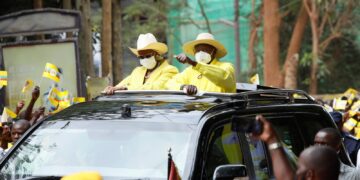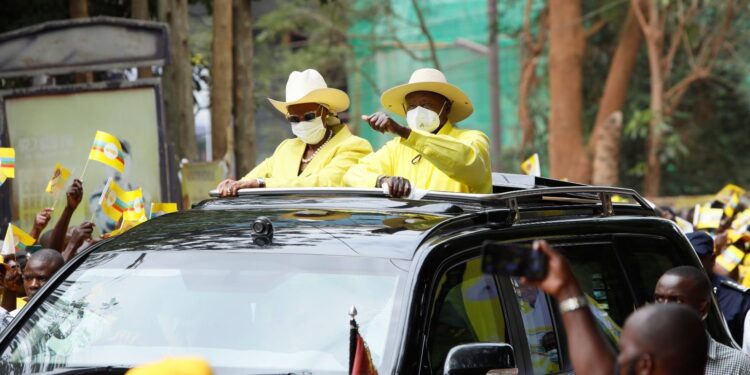President Yoweri Kaguta Museveni has vowed to steer Uganda toward a $500 billion economy, using a six-point development agenda that emphasises peace, wealth creation, and regional integration—while warning against reducing politics to age, gender, or careerism.
The President made the remarks Saturday after being formally nominated as the sole candidate for both National Chairman of the National Resistance Movement (NRM) and the party’s flagbearer in the 2026 presidential elections.
The highly anticipated nomination ceremony was held on Friday at the NRM Electoral Commission headquarters in Kampala, drawing top-tier party officials, ministers, Members of Parliament, and jubilant supporters from across the country.
Accompanied by First Lady Maama Janet Museveni, the President thanked the party for the endorsement and laid out an ambitious vision for Uganda’s future if elected for another term.
“I want to thank the NRM Electoral Commission for nominating me,” Museveni posted shortly after the ceremony. “I hope the whole membership of the NRM and its structures will support my candidature as Chairman for 2025–2031 and flag-bearer for the 2026–2031 Presidential term.”
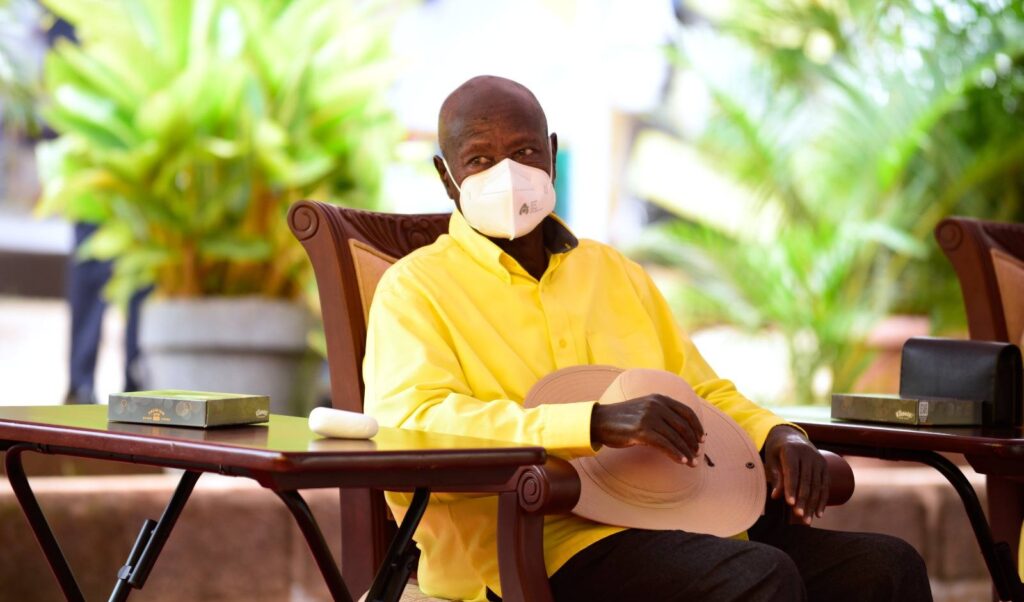
Museveni, who has led Uganda since 1986 and the NRM since its days as a student movement in 1965, said his continued leadership is driven by a sense of historical duty and conviction rather than personal ambition.
“Politics is not about biology—age, gender—or ‘jobology’ [careerism],” he said. “If our generation had had a jobist mentality, Uganda would never have been rescued. We left well-paying government jobs to fight for the salvation of Uganda.”
A Legacy of Recovery and a Promise of Transformation
In a detailed address following his nomination, the President reflected on the country’s turbulent post-independence history and the NRM’s role in stabilising Uganda. He outlined the three historical phases under the NRM: liberation (1965–1986), stabilisation (1986–2025), and the current phase of transformation.
“By 1986, Uganda had suffered three mega traumas: political fragmentation, institutional collapse, and economic breakdown. The NRM has led the efforts to reverse that,” Museveni said.
According to the President, Uganda’s economy has grown from USD 3.9 billion in 1986 to USD 61 billion (foreign exchange method) and USD 172.2 billion (PPP method) in 2025. He noted that Uganda has now attained lower middle-income status with a GDP per capita of USD 1,263.
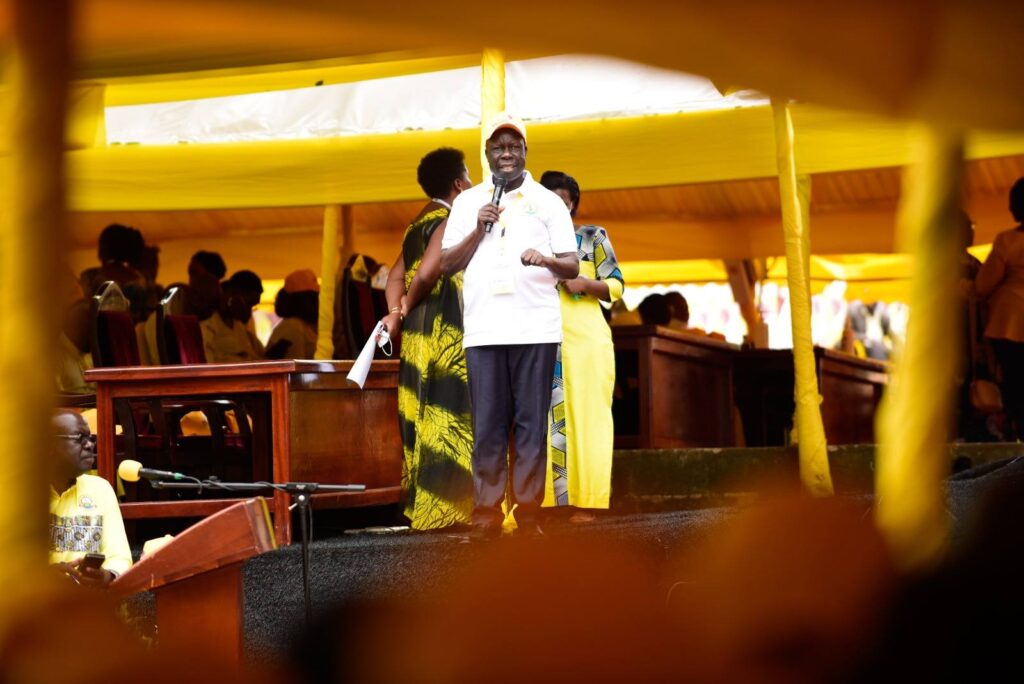
However, Museveni said the next term must focus on a “qualitative leap”—transforming Uganda into a high middle-income economy worth USD 500 billion, largely through value addition, industrialization, and the knowledge economy.
“Other countries in Asia with fewer natural resources have done it. Why not us? We have the raw materials, the manpower, and now the peace and infrastructure,” he argued. “By refining tin, purifying gold, and processing coffee here instead of exporting raw materials, we can multiply our income and create millions of jobs.”
The Six-Point Agenda
Museveni reaffirmed a six-point agenda that he says will guide Uganda’s continued transformation: Peace – “No war and no crime”; Development – Infrastructure and economic growth; Wealth – “Every home must have wealth. It is personal and private”; Jobs – Especially from the private sector; Services – Health, education, spirituality, hospitality, etc. and Markets – Boosting local and regional demand through integration.
“This is how we grow jobs,” Museveni explained. “Factories now employ 1.2 million people, agriculture 3.6 million, and services 5 million. Compare that to the 480,000 in public service. Private wealth is what creates jobs. That nexus must be clear.”
A Message to the New Generation
Museveni used the occasion to speak directly to the newly elected NRM leaders at village, parish, and district levels, most of whom are young people.
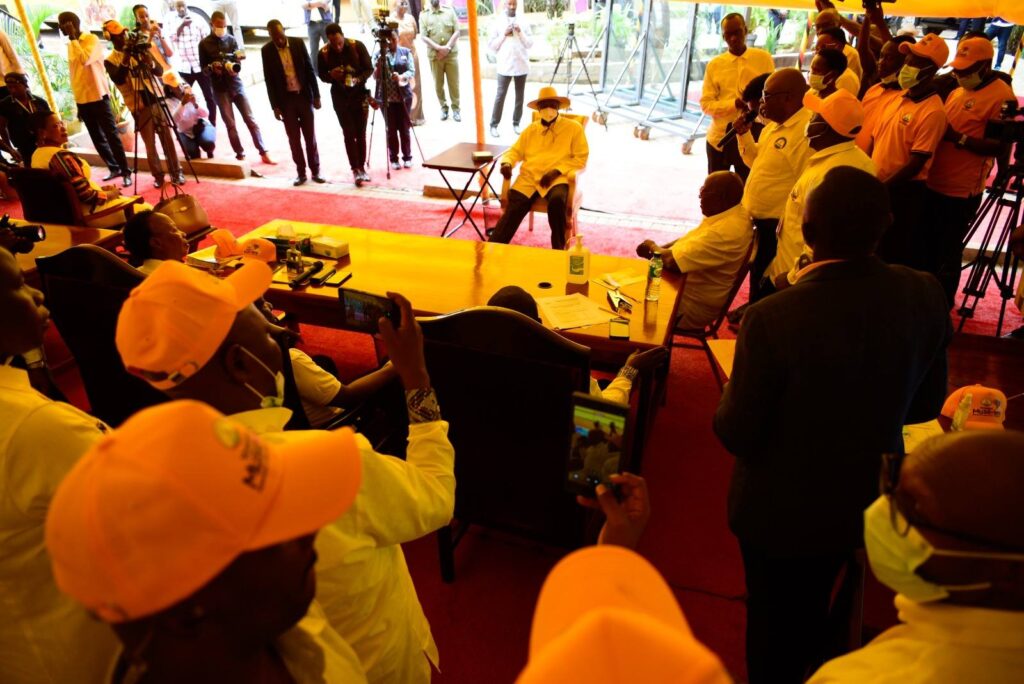
“This is your chance to show that you can lead well,” he said. “Do not look at leadership as a means of living—a job—but as a mission to fight for your people.”
He urged the new leaders to embrace patriotism, Pan-Africanism, socio-economic transformation, and democracy, which he called the NRM’s guiding ideological pillars.
He also encouraged them to become wealth creators through programs like the Parish Development Model (PDM) and Emyooga, warning against treating leadership as a form of personal employment.
Looking Ahead: Vision 2040—Or Sooner
Museveni dismissed the idea that Uganda must wait until 2040 to achieve high middle-income status.
“That is too far. I believe we can get there much earlier if we eliminate corruption and aggressively pursue value addition and integration,” he said. “With maximum value addition and a knowledge economy, we shall achieve the qualitative leap.”
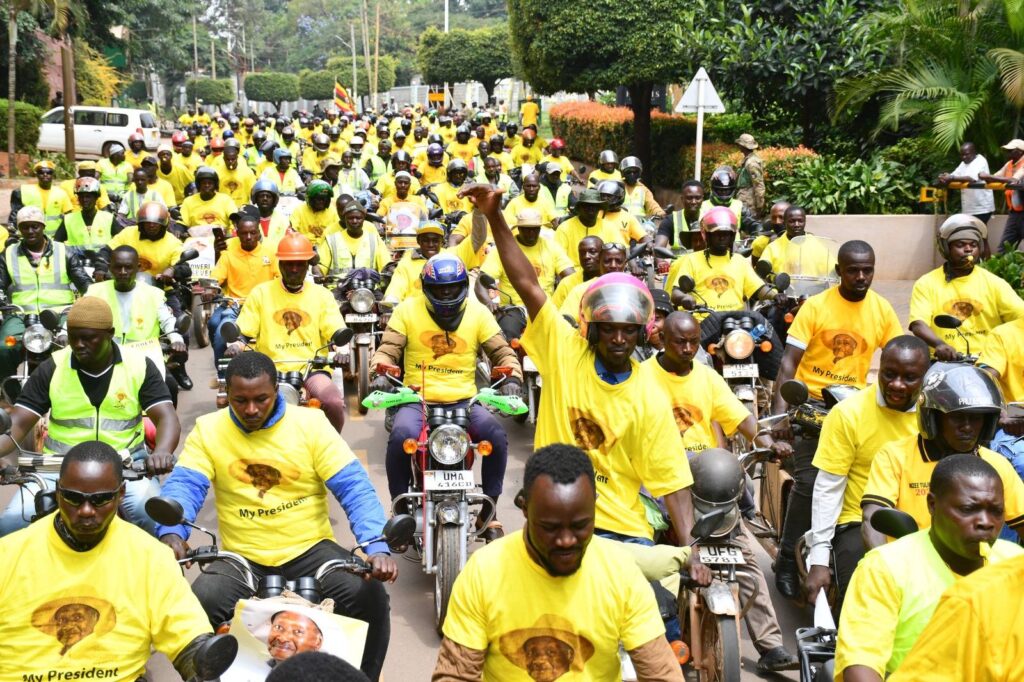
In closing, the President paid tribute to the generations of Ugandan freedom fighters and reformers—from the 1920s Bataka movements to the Uganda National Congress of the 1950s—whose struggles paved the way for Uganda’s independence and later transformation.
“Long live the sixty years of victories and progress,” he declared. “Long live the qualitative leap to a USD 500 billion economy. All glory to God our creator and sustainer.”
With Museveni’s nomination confirmed and unopposed, the NRM now turns its attention to the 2026 elections, with the veteran leader again at the helm—ready, he says, for one more phase of Uganda’s transformation.
Read the Full Nomination Speech here.
